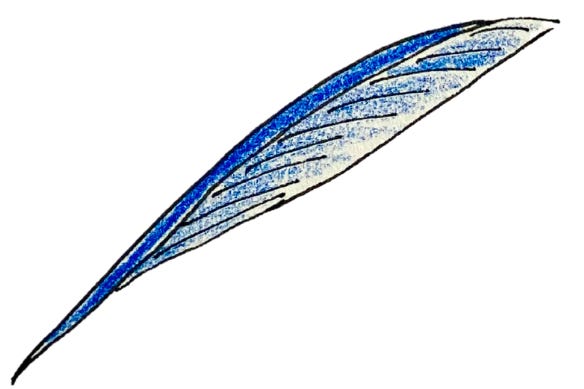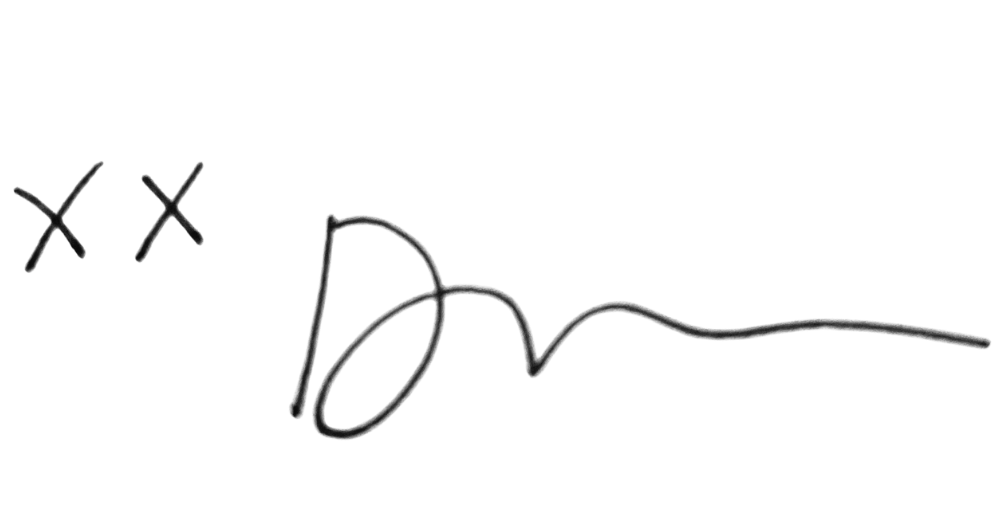Untitled: Golden Threads?
Dear Starlight,
It’s Thursday morning, the sun bright outside. I’m indoors, dressed in a shade of gray fleece. I’ve been in sweatpants for what feels like centuries, nursing a cold that has me blowing my brains into tissues. Like whiplash, I impulsively buy a golden wool jacket on Instagram. It’s my color—joyful. That type of New Year’s action where you think, I’m starting a diet and suddenly find yourself devouring a dozen chocolate donuts.
Moments into my internal inferno of self-doubt about the jacket, I see the LA flames on my feed. The devastation unfolds in real time as I sit safely from afar, watching entire lives disappear in uncontrollable moments on my 3” screen. Fire didn’t judge. It took everything—expensive or cheap, new or old.
My sister called yesterday. “I dreamed Dad died,” she said. “He had a heart attack. It’s weird because I don’t think of him often or dream about him. Also, I dreamed of my husband’s dick and balls on an escalator!” We laughed.
“That’s weird because I think I dreamed of him too—Dad, I mean,” I replied. Then I realized, no, I hadn’t dreamed of him, but I’d been thinking about him. Specifically, about his Ducati motorcycle.
When I was in middle school, my father’s mother died. I had only met her once—a thin, austere woman in a brown turtleneck and slacks and a short mans haircut. She brought black grapes with her. I’d never seen black grapes before. She told me they had seeds in them. She said her name was Ama.
I was raised in extreme poverty, a stark contrast to Ama’s lavish and wealthy life. We were not a part of it, nor did we know much about it. She died a cruel and lonely death and left my father an inheritance in the hands of a swindling trustee. During a bipolar break, while institutionalized, my father signed away his right to the inheritance in exchange for a Ducati motorcycle; which he drove away into the Florida sunset with another inpatient.
Sometimes, I felt sad and angry about the injustice—the loss of something that was never mine–the archetypal father I longed for: steady, supportive, safe.
Years later, when the 2008 housing market crashed, a wealthier friend told me he’d “lost tons.” I looked at him and wondered, What had he really lost? He still had his home, his family, his lifestyle. What he had lost was an imagined future—built on stilts.
When the Argentinian banks collapsed, a friend’s gentle, silver-haired grandfather finally agreed to take his life savings out from under his mattress and deposit it in the bank. A month later, it was all gone. Wiped away. And how had it existed in the first place? Only as paper bills and unlived dreams piled under a mattress.
When I had a miscarriage, I experienced the loss of a growing life in me. I grieved the dream of a life raising her. That imagined future wiped away in bloody pain.
Yesterday, a friend and I spoke about a potential workplace loss—a pivot that could undo years of investment. We talked about detachment, about recognizing what’s beyond our control. Grief, anger, frustration—yes, but shame? No.
We live in a society that fosters disconnection and creates conditions where some lack basic needs while others hoard wealth. Consumerism feeds us a constant drip: You don’t have enough. You aren’t enough. We’re oppressed by systems that tie our worth to productivity and force us to posture for external validation. We spend our lives working to fill the coffers of the few, stashing dollars into banks for imagined futures we may never see.
Maybe this is what hell is: living in a constant state of imagined lack; or, imagining we have control over life.
I have a friend from Kenya who lives her life as a lavish nomad. Her resources are in constant revolution: new homes, cars, tents, motorcycles, boats. She holds onto nothing. There’s no savings, no career strategy, no fear. When she needs money, she sells something or makes something. “The journey is the destination!” she exclaims, flinging her arms to the sky in her classic victory stance and a feather in her hair.
When I asked what made her fearless—what allowed her to treat each day as a marvel—she said it was her upbringing. Her mother was one of many wives of a tribal chief, and they were nomads. There was collective care, trust, and freedom. Nothing was hoarded, not even children.You chased joy and came home to be fed in community.
Building trusting relationships of care can help us release the fear of loss and scarcity that often dictate our choices. These relationships empower our joyful and authentic selves to take risks, live fully in the present, and make decisions aligned with our values. I think these relationships are both outside our selves in community and are also with ourselves.
So, what caring steps can we take toward each other today, this week, this year? How are we building trust with ourselves by choosing authentically aligned with our own truths?
Yesterday, I packed a bag of clothes to be sent to LA and went to the shop that was collecting the clothing to give to strangers in need. It was also the shop I had bought the golden wool jacket from. A beloved local store with two angels at its helm. I dropped the garments to be shared and picked up my new jacket, I put it on.
It fits like a hug.





